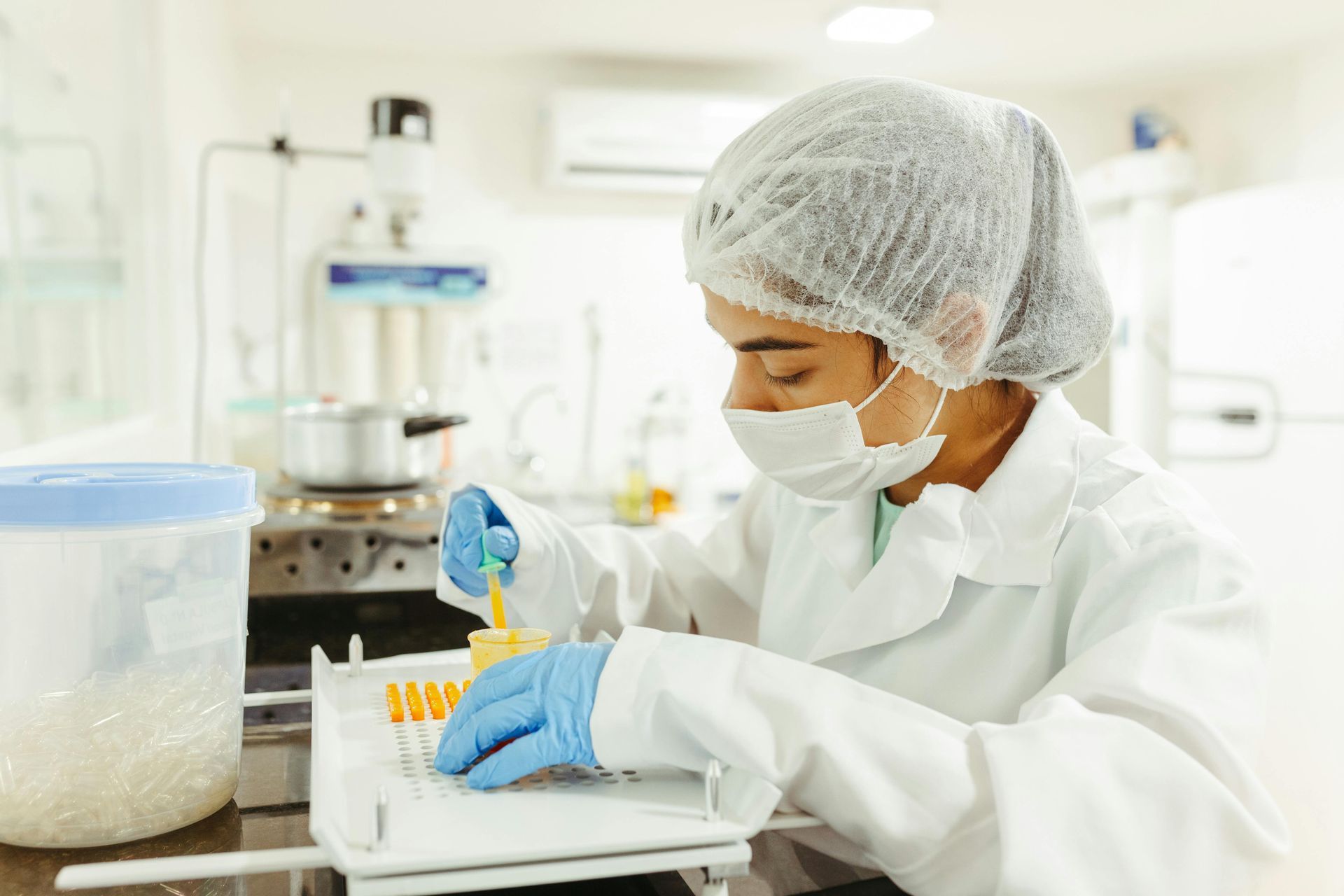Accuracy Concerns With COVID-19 Diagnostic Test
The FDA has alerted the public to preliminary data suggesting that a COVID-19 diagnostic test may yield inaccurate results. In particular, Abbott’s ID NOW, a test that is being used to examine White House officials, may have led to missed cases of COVID-19 and infected patients who have been falsely cleared.
Abbott’s ID NOW is a point-of-care test that can be performed quickly with a healthcare professional present. Unlike other tests—which require samples to be shipped to a lab to be evaluated—Abbott’s ID NOW takes only fifteen minutes to yield results. The ID NOW was granted an emergency use authorization (EUA) by the FDA back in March.
Rapid test results have been widely regarded as a key player in halting any further spread of COVID-19. The Trump administration has shipped upwards of 235,000 Abbott ID NOW tests to U.S. public health laboratories. At the same time, Abbott itself claims to have distributed 1.8 million tests to healthcare facilities across the country.
COVID-19 Test Accuracy Called Into Question
While no diagnostic test is 100 percent accurate, studies using the Abbott ID NOW have emerged with startlingly high false negatives rates. One study indicated that the test might miss as many as half of all positive COVID-19 cases, overlooking a third of cases detected with a rival test developed by Cepheid. Abbott has disputed the results, citing improper specimen handling and user error, and claiming a false negative rate of 0.02 percent when testing instructions are followed correctly.
The FDA and Abbott Laboratories are currently investigating whether test results are misrepresented when different types of nasal swabs are used to collect samples and whether viral transport media—used to transport samples—may play a role. In April, Abbott warned healthcare professionals not to use transport chemicals after research from the Cleveland Clinic revealed a 15 percent false-negative rate when samples were stored with these chemicals.
It should be noted that research against the ID NOW has not been published or peer-reviewed in a medical journal and included 100 patients. Abbott has called attention to independent study results that have found accuracy rates of 90 percent or higher using the ID NOW.
The Danger of False Negatives
False-negative results prevent infected patients from seeking immediate treatment while increasing the risk of patients unknowingly spreading the virus to others. In the long run, a high rate of false negatives obscures the true scope of an outbreak.
While the Abbott ID NOW can diagnose positive cases in mere minutes, negative results may need to be reinforced by the results of other tests, such as a high-sensitivity authorized molecular test. For now, Abbott and the FDA have issued a notification letter to users recommending symptomatic patients with negative test results to confirm results with another test. Abbott plans on initiating post-market studies to evaluate the accuracy of the ID NOW.
Keep Your Organization Up-To-Date With CfPIE
Have you taken steps to ensure that your staff is caught up with the latest developments in the industry? Here at the Center for Professional Innovation and Education (CfPIE), we provide quality life science training and certification courses.
To learn more about FDA regulatory compliance—we recommend the following courses:
- Comprehensive Overview of FDA Regulatory Compliance for Drug and Biotech Products
- Preparation of FDA Submissions and Communicating with the FDA
Questions? Get in touch with our team today by calling 1-610-648-7550 or emailing [email protected].
Blog Categories
Stay Informed
Have Questions?
You will be able to find answers to most frequently asked questions here
Since 2001 CfPIE has
Check Out Our Life Science Training Courses.
Need help finding the right life sciences training courses? We can help you make the right choice based on your company's needs.
- AMDE, PK/TK & Drug Metabolism in Drug Discovery and Development
- Advanced Topics in Biostatistics for Non-Statisticians
- Analytical Chemistry Principles for Pharmaceutical Scientists
- Analytical Method Validation for Biologics, Biopharmaceuticals and Other Therapeutic Products
- Aseptic Processing in the Manufacture of Biotech and Pharmaceutical Products
- Auditing and Qualifying Suppliers and Vendors
- Best Practices for an Effective Cleaning Validation Program
- Biostatistics for Non-Statisticians
- CMC Regulatory Compliance Strategy for Cell & Gene Therapy Medicines
- CMC Regulatory Compliance Strategy for Recombinant Proteins, Monoclonal Antibodies, & Biosimilars
- Change Control - GMP Requirements and FDA Enforcement
- Cleanroom Fundamentals - Regulation, Science, Design, Practice, Operation & Management
- Clinical Document Management: A Trial-by-Trial Compliance Approach
- Clinical Trial Project Management, Phase 1-4 Best Practices
- Comprehensive Overview of FDA Regulatory Compliance for Drug and Biotech Products
- Computer System Validation
- CRO, CDMO and Non-Clinical Vendor Management Fundamentals
- Development and Validation of Bioanalytical Assays for Biologics: Quantification (PK) and Immunogenicity Assays
- Effective Document Management for Pharma, Biotech & Medical Device
- Effective Internal and External Quality Assurance Auditing for FDA Regulated Industries
- Ethics in Research - Values for Responsible Conduct of Research
- European Regulatory Procedures - EMA & National Requirements
- FDA Inspections - What Regulators Expect and How to Prepare
- GCP Audits - Best Practices for Ensuring Compliance & Detecting Fraud and Misconduct in Clinical Trials
- GMP Training for the QC Laboratory
- Good Clinical Practices (GCP) & Risk Based Monitoring - Understanding and Implementing Current Global Requirements
- Good Laboratory Practice (GLP) for Nonclinical Laboratory Studies
- Good Manufacturing Practices Training | GMP Course
- Human Error Prevention (HEP) - Risk Factors and Strategies
- Implementing and FDA Compliant Stability Program
- Integration of Risk Management Principles and Activities into the Pharmaceutical Quality System
- Intro to Medical Device Submission - 510(s)s, PMAs & Exemptions
- Introduction to Medical Combination Products
- Introduction to Statistical Analysis of Laboratory Data
- Introduction to Vaccines - CMC Regulatory and Quality Aspects
- Laboratory Equipment Validation and Qualification
- Lyophilization Technology - Application of Scientific Principles
- Marketing & Advertising of Pharmaceutical & Medical Devices
- Medical Device Process Validation Training for Professionals
- Medical Devices: Developing Effective Post Market Surveillance and Compliant Handling Systems
- Molecular Biology Techniques - Applications in the Biotechnology and Pharmaceutical Industries
- OTC Drug and Personal Care Product GMP & FDA Regulation
- Oncology Drug Development Course - A Comprehensive Overview
- Overview of FDA Regulatory Compliance for Medical Devices
- Overview of the New EU Medical Devices Regulations: MDR, IVDR, CE Mark and Compliance, QMS Fundamentals
- Pharmaceutical Root Cause Analysis of Failures & Deviations - Developing an Effective CAPA Strategy
- Preparation of FDA Submissions and Communicating with the FDA
- Preparing the CMC Section for NDAs/INDs/CTDs
- Process Validation for Drugs and Biologics
- QbD - Product & Process Optimization using Design of Experiments
- Quality Assurance/Quality Control for Biologics and Biopharmaceuticals
- RNA Biotechnology - An Introductory Course
- Specifications for APIs & Pharmaceutical Drug Products
- Technical Writing for Pharma, Biotech and Med Devices
- The Drug Development Process from Concept to Market
- US Medical Device & Quality Systems Regulations - Design Controls & Validation
- Writing Effective SOP and Other Process Documents
ABOUT US
The Center for Professional Innovation and Education (CfPIE) provides technical training for Pharmaceutical, Biotech, Medical Device and Skin/Cosmetics professionals. CfPIE offers more than 350 class sessions annually across 80 course titles in multiple formats, such as classroom, on-site, and certification programs.
USEFUL LINKS
STAY INFORMED
Your privacy and trust are important to us. We collect your information only for operational and advisory purposes. We do not and will not sell your private information to a 3rd party. By agreeing to this policy, you are giving us permission to contact you about our services and courses.
All Rights Reserved | CfPIE Inc. | Our courses and materials are copyrighted by CfPIE, Inc. and may not be used or reproduced without the written permission of CfPIE, Inc. management. | In partnership with CCC


